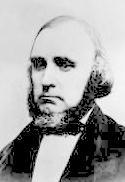1799 - 1872 Hymnal Number: d217 Author of "Dear Savior, if these lambs should stray" in The Saints' Harp Hyde, Abby Bradley, was born at Stockbridge, Massachusetts, Sept. 28, 1799, and married to the Rev. Lavius Hyde, of Salisbury, Mass., Sept. 28, 1818. She died at Andover, April 7, 1872. Her first poem, an Address to Mr. Wolfe, the Jewish missionary, appeared in a New Haven paper in 1822 or 1823, and from it Dr. L. Bacon (q.v.) took two hymns for his Hymns & Sacred Songs for the Monthly Concert, Andover, 1823. Those hymns have merit, but are not now in common use. Asahel Nettleton included 9 pieces by her in his Village Hymns, 1824, and 34 more were given in the revised and enlarged edition of the same, 1851. An additional hymn appeared in Nason's Congregational Hymn Book, 1857.
Of those hymns the following are still in common use:—
1. Ah, what can I a sinner do! Lent. From Nettleton's Village Hymns, 1824, in 5 stanzas of 4 lines, into a few collections.
2. And canst thou, sinner, slight! Grieve not the Spirit. From Nettleton's Village Hymns, 1824, in 4 stanzas of 4 lines, into a great number of American collections, and a few in Great Britain.
3. Behold the glorious dawning bright. Second Advent. From Nettleton's Village Hymns, 1824, in 4 stanzas of 4 lines. Limited in use.
4. Dear Saviour, if these lambs should stray. Prayer on behalf of children. In Nettleton's Village Hymns, 1824, in 4 stanzas of 4 lines. A touching hymn, and widely used.
5. Say, sinner, hath a voice within! Exhortation to Repentance. In a letter to Mr. Nason, dated July 10, 1857, Mrs. Hyde says that this hymn "was written down from my lips by a young sister, when I was not able to hold up my head from the pillow." It appeared in Nettleton's Village Hymns, 1824, in 6 stanzas of 4 lines, and is in extensive use.
All Mrs. Hyde's pieces in the Village Hymns are signed "Hyde." [Rev. F. M. Bird, M.A.]
-- John Julian, Dictionary of Hymnology
Abby Hyde


 My Starred Hymns
My Starred Hymns




